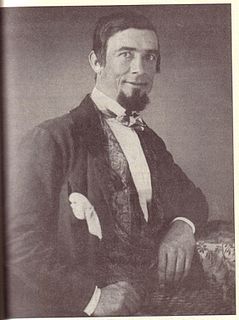A Quote by Theodore Kaczynski
Art forms that appeal to [leftists] tend to focus on ... defeat and despair ... as if there were no hope of accomplishing anything through rational calculation.
Related Quotes
The settlers, as we know, are the only people in Israel who take the Left seriously. When you read the settlers' publications, you think that the leftists are everywhere: The leftists infiltrate the government, the leftists run the Defense Ministry, the leftists dominate the legal establishment, and the leftists control the media, of course.
It is the mark of great art that its appeal is universal and eternal.............. Great art remains stable and unobscure because the feelings that it awakens are independent of time and place, because its kingdom is not of this world. To those who have and hold a sense of the significance of form what does it matter whether the forms that move them were created in Paris the day before yesterday or in Babylon fifty centuries ago? The forms of art are inexhaustible; but all lead by the same road of aesthetic emotion to the same world of aesthetic ecstasy.
It is possible that, through horizontal and vertical lines constructed with awareness, but not with calculation, led by high intuition, and brought to harmony and rhythm, these basic forms of beauty, supplemented if necessary by other direct lines or curves, can become a work of art, as strong as it is true.
Optimism is an alienated form of faith, pessimism an alienated form of despair. If one truly responds to man and his future, ie , concernedly and "responsibly." one can respond only by faith or by despair. Rational faith as well as rational despair are based on the most thorough, critical knowledge of all the factors that are relevant for the survival of man.
You're not eating anything," said Marilla sharply, eying her as if it were a serious shortcoming. Anne sighed. I can't. I'm in the depths of despair. Can you eat when you are in the depths of despair?" I've never been in the depths of despair, so I can't say," responded Marilla. Weren't you? Well, did you ever try to IMAGINE you were in the depths of despair?" No, I didn't." Then I don't think you can understand what it's like. It's very uncomfortable a feeling indeed.
I would simply ask why so many critics, so many writers, so many philosophers take such satisfaction in professing that the experience of a work of art is ineffable, that it escapes by definition all rational understanding; why are they so eager to concede without a struggle the defeat of knowledge; and where does their irrepressible need to belittle rational understanding come from, this rage to affirm the irreducibility of the work of art, or, to use a more suitable word, its transcendence.
Of course I constantly despair at my own incapacity, at the impossibility of ever accomplishing anything, of painting a valid, true picture or even knowing what such a thing ought to look like. But then I always have the hope that, if I persevere, it might one day happen. And this hope is nurtured every time something appears, a scattered, partial, initial hint of something which reminds me of what I long for, or which conveys a hint of it – although often enough I have been fooled by a momentary glimpse that then vanishes, leaving behind only the usual thing.
And I do think that good art - the art that tends to last - is that art that hits human beings on several different levels at once because everybody's different. Some people approach art through their emotions, others through their head, and the art that can appeal to all of those levels is more likely to reach more people. Having more people see the work doesn't necessarily mean better art but it stands a better chance of lasting.
Optimism is a matter optics, of seeing what you want to see and not seeing what you don't want to see. Hope, on the other hand, is a Christian virtue. It is the unblinking acknowledgment of all that militates against hope, and the unrelenting refusal to despair. We have not the right to despair, and, finally, we have not the reason to despair







































